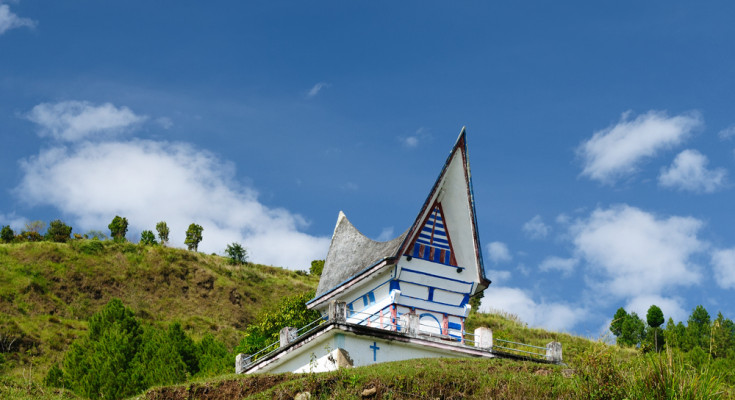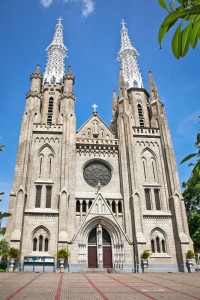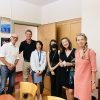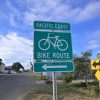|
By: Peter Cohen A 12th Century Christian Egyptian record of churches suggest that a church was established in Barus, on the west coast of North Sumatra, a trading post known to have been frequented by Indian traders, and linked therefore to the Indian Saint Thomas Christians. No record nor trace of such a community remains. The first significant evidence of Christian activity came with the arrival of Portuguese traders in the 16th century in the Malay Archipelago.
The Portuguese arrived in the Malacca Sultanate (modern-day Malaysia) in 1509 seeking access to its wealth. Although initially well-received, the capture of Goa as well as other Muslim-Christian conflicts convinced the Malaccan Muslims that the Portuguese Christians would be a hostile presence. The resulting capture of Malacca is believed to have enhanced a sense of Muslim solidarity against the Christian Portuguese, and ongoing resistance against the Portuguese came from Muslim Aceh as well as from the Ottoman Empire. Although the Portuguese built some churches in Portuguese Malacca itself, their evangelical influence in neighbouring territories was perhaps more negative than positive in promulgating Christianity. The Portuguese were more successful in Maluku, Timor and Sulawesi in converting the indigenous inhabitants. West Kalimantan (Borneo) inhabitants, many of whom were Chinese and aboriginal peoples, also became Christians. Today, all Kadazan in Sabah are Christians, while many Dayak and Iban are as well (some later converted to Islam). The Portuguese had little influence on the Muslim Malay sultanates and their subjects, who were resistant to conversion, whether by the Portuguese earlier or by the British in the 19th-20th centuries. With the arrival of the Dutch, missionary activity increased, primarily by Dutch Protestants, but also Dutch Catholics. The Dutch supplanted the Portuguese and took over formerly Portuguese Churches and missionary activities. The Dutch East Indies (DEI) was an economic and cultural enterprise that had varying religious impact on the indigenous inhabitants. While Maluku, Sulawesi, Timor and Papua were receptive to both Portuguese Catholicism and Dutch Protestantism, Java, Bali and Sumatra were less receptive, with some notable exceptions. The Dutch had a difficult time convincing most Javanese, particularly the aristocracy, to convert. Some Javanese in central and eastern Java (and Flores) converted, but west Java remained defiant. Most converts were not from the Javanese aristocracy and certainly not from Islamic scholars widely distributed in Java
|

Previous Post
Sita's stories: Billboards & Banners on Bali
Next Post
Sita's stories: The Magic of the Mobile Phone












